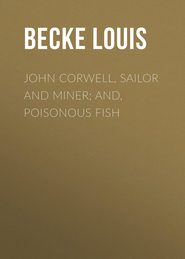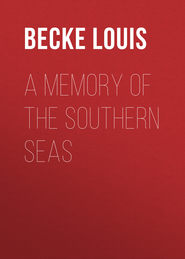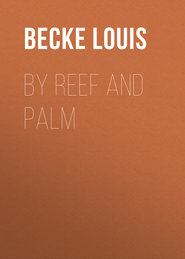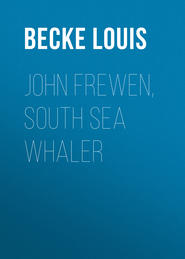По всем вопросам обращайтесь на: info@litportal.ru
(©) 2003-2024.
✖
Foster's Letter Of Marque
Настройки чтения
Размер шрифта
Высота строк
Поля
“What has come true, and who is going to destroy the settlement?” said her father sharply. And then Dolly, feeling very frightened and miserable, told him of Portveldt’s letter, the receipt of which she had concealed from every one but Foster. The D.A.A.C.G. laughed at first, but then added, “but all the same, though ‘twas but empty bluster, I had better tell his Excellency about it; it is just possible that the Dutch have planned an expedition against us.”
At half-past ten, in response to a signal made from the look-out at South Head by the officer in charge there, his Excellency Governor King sent Lieutenant Houston, of his Majesty’s ship Investigator, then anchored in Sydney Cove, to the naval officer in command at South Head.
The Investigator was Flinders’ ship, the gallant old tub of 334 tons which surveyed a great part of the northern coast, and was at the time of which we write lying rotting in Sydney, condemned after completing her second voyage of discovery in June, 1803.
Then the Governor was told of Dolly’s letter, but he was not the man to take fright at the approach of the enemy, although he had no defence force as it is now understood in New South Wales, nor had he a gold-laced staff of officers with elaborate “defence schemes” against possible raids of Japanese or Russians by way of Exmouth Gulf or Port Darwin.
In that year Governer King’s force did not take long to be marshalled. The drums beat to arms, and the New South Wales Corps and the Loyal Association immediately formed into line on the shores of the Cove.
At eleven o’clock a trooper arrived at Government House with intelligence that one of the vessels appeared under British colours, and the other was flying a Union Jack triumphant over a Dutch Jack. Following this message there soon came another, bringing the certain intelligence that one of the ships was an English whaler bringing into port her Batavian prize. So on receipt of this news, and just as the word to march was about to be given, the officer in command ordered his force to return to barracks.
At two in the afternoon, with the whole of the settlement agog with excitement, the two vessels sailed slowly up the harbour before a light northeast breeze, and came to anchor in Sydney Cove, close to the Investigator, on board of which ship the Governor and a number of naval officers awaited their arrival. For once discipline was relaxed, and Captain King had good-naturedly permitted the townspeople to throng on board to learn all the news about the Policy’s prize. As Captain Foster made his way to the quarter-deck, he saw that behind the Governor and his staff were Dolly and her parents and several ladies.
In a very few minutes he made his report, and the Governor again shook his hand warmly; but the look in Dolly’s eyes and the pressure of her hand were the young seaman’s sweetest reward, for it told him that she had surrendered.
Then, returning to his own ship, he was warmly greeted by Sergeant Burt, and for a few moments the two remained talking in the whaler’s cabin. Then, just as Foster was ready to go ashore, Mr. Scarsbrook, who had been inspecting the captured privateer, came on board, bringing Dolly with him.
Whilst they were all chatting merrily together Captain Portveldt made his appearance, and with the most perfect sang-froid saluted Dolly and her father.
“Veil, Mees Dorotee, you see I have gome back, at der bressing invidadion of mein goot friendt, Captain Voster here, und I do vish him mit you blendy of habbiness.”
And Dolly, who at first meant to meet him with a sarcastic little speech, felt her eyes fill with tears at the manly way in which he bore his misfortune, and could only falter out some few words of consolation. Then there was a Prize Court, and—
“Mr. Charles Sparrow Foster, commander of the whaler and letter of marque called the Policy, presented to the Court a memorial stating his capture of the Swift on the 12th day of September, off the island of Flores, she being under Dutch colours… and the property of subjects of a Power at war with his Britannic Majesty, and praying also that the Court would be pleased to grant an award of condemnation in his favour in order that the said prize should be for the advantage of himself, his owners, and his ship’s company.”
and the Court having heard confirmatory evidence from Richard Portveldt, a subject of the Batavian Republic, to the effect—
“That he commanded the Swift; that everything on board of her was Dutch property, and she belonged to Messrs. Winy and Talman, of Batavia, and himself, all of whom were residents of Batavia, who purchased her for the sum of 18,000 dols.: that she was taken up by the Dutch East India Company at Batavia; and was on her way thither when she was captured by the Policy, &c.”—
accordingly condemned the prize, which was advertised in the Sydney Gazette for sale by auction, Mr. Lord, the auctioneer, setting forth that he would sell—
“At his warehouse, Sydney, at noon precisely, the 3rd of November, the good ship Swift, prize to Policy, Charles Foster, commander. French built in the year 1800. Was condemned a prize to his Majesty’s ship La Minerva, and sold in 1801 to the Americans, as appears by the bill of sale, and by them sold to the Dutch at Batavia, where she was examined, copper-bolted, and new coppered in August, 1802. It is unnecessary to say anything respecting the properties of the Swift further than that she was the companion of La Brave and La Mouche, which so very much harassed the British in Europe, and set all our cruisers at defiance until her capture, prior to which she was justly celebrated as the fastest sailing-vessel the French Republic had.”
The prize was knocked down for £3,000, and Captain Foster’s share was spent in a handsome wedding present for Dolly, which, at her particular request, took the form of a passage to Batavia and a hundred guineas delivered to Captain Portveldt immediately after the marriage ceremony.











